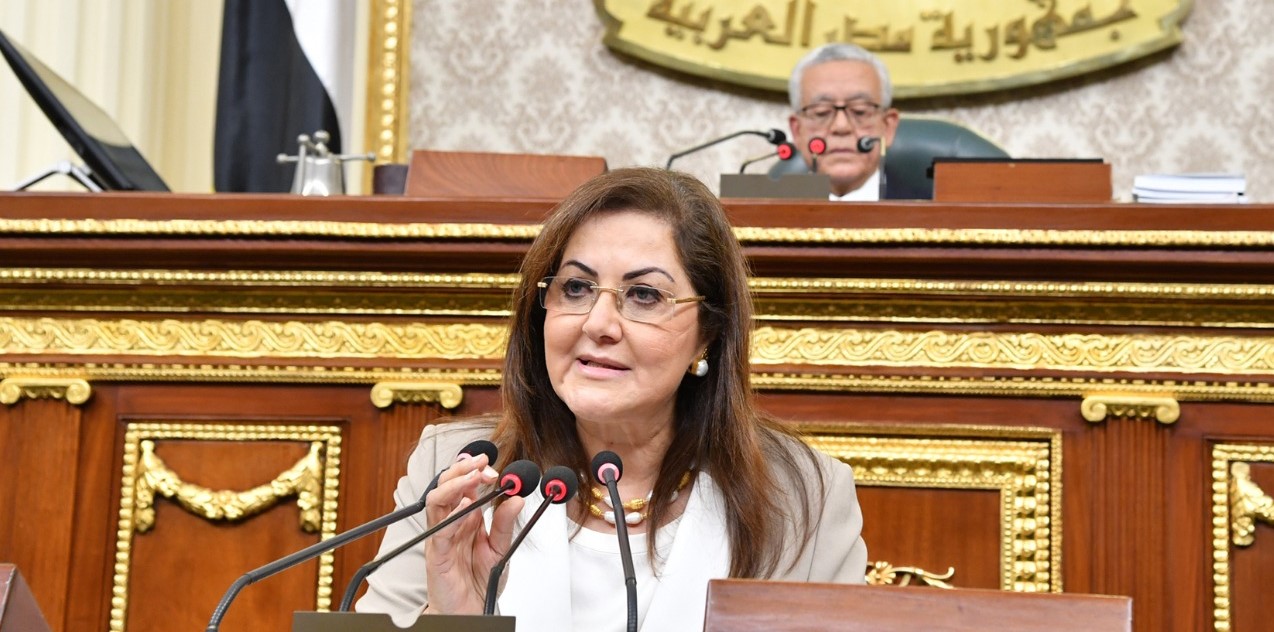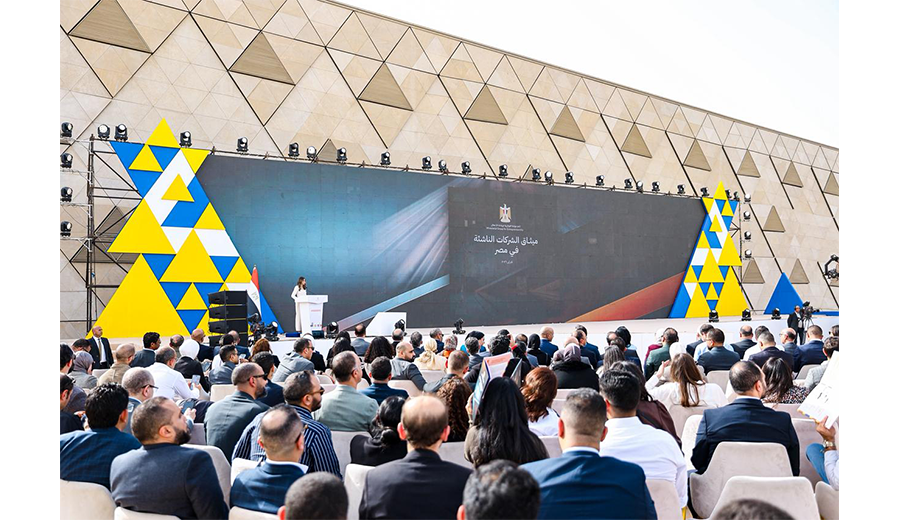The "Decent Life" initiative is an unprecedented development project: Planning Minister

25 April 2021
Hala El-Said, Minister of Planning and Economic Development, said that within the framework of a comprehensive and integrated approach to achieving sustainable development, improving the quality of life of citizens, and providing balanced regional development pillars, the state is working on implementing many important initiatives, including the “Decent Life” Initiative.
She stressed that this initiative is an unprecedented project and is considered the largest development initiative in the history of Egypt and even the world, both in the size of the financial allocations or the number of beneficiaries.
“It is an integrated Egyptian development experience and comprehensive with economic and social impact and environmental positive and widespread,” She explained.
This initiative aims to change the face of the Egyptian countryside developmentally better, and improve all aspects of the standard of living of the Egyptian citizen, such as health, education, drinking water, sanitation, paving roads, sports, and culture.
This came during El-Said’s presentation on Sunday of the draft statement of the sustainable development plan for the fiscal year 21/2022, the fourth year of the medium-term plan (18/2019 - 21/2022) before the plenary session of the House of Representatives chaired by Dr. Hanafi Jabali.
El-Said added that to ensure the achievement of the desired positive impact of the initiative, especially concerning addressing development gaps and achieving balanced regional development, has been developed controls and determinants for the selection of villages covered by the initiative, according to the idea of targeting and planning based on the evidence.
Depending on the available databases in the country through the Central Agency for Public Mobilization and Statistics (CAPMAS) from research income, expenditure and consumption, and census 2017/2018 economic, survey the overall characteristics of the local community in 2020, which provides a comprehensive description of the economic, social and environmental characteristics of each village, and the status of all of the services available to them.
El-Said explained that the launch of the second phase of the initiative comes as a continuation of the success of the first phase, which was launched in January 2019 and targeted 375 villages and contributed to mitigation.
This helped to reduce poverty rates in some villages by 14 percentage points, resulting in improved access to basic services by about 50 percentage points in some villages rate, with the completion of the establishment of 51 health alone, and the establishment of 1534 classrooms, and providing sanitation services in 37 villages It raised the efficiency of 5339 homes, as well as other developmental interventions that meet all the seventeen sustainable development goals.
The second phase is targeting all Egyptian rural villages (4670 villages inhabited by more than half of Egypt's population -57 million citizens) to be converted into rural communities sustainable available by all development needs in three years at a total cost that exceeds EGP 600 billion, including speeding up the state’s steps towards settling the goals of sustainable development, and more than the goals of Egypt's Vision 2030.
El-Said confirmed that the government is keen to develop a methodology and tools for assessing the developmental impact of the initiative, especially concerning reducing poverty and unemployment, and improve the quality of life and access to basic services, and achieving satisfaction and aspirations of the citizens.
She drew happy that the success of the “Decent Life” initiative has been crowned with the inclusion of the United Nations initiative within the international best practices ", so specific and being a verification and have a time range, and measurable, and converge with all UN sustainable development goals.
Among the other initiatives, El-Said reviewed the initiative to localize the goals of sustainable development within the framework of achieving balanced regional development 2030 and the balanced pillars.
In recent years, efforts have intensified to “localize the goals of sustainable development” in the governorates, to maximize the comparative advantages of all the governorates.
In this context, El-Said pointed out that it has been allocated about EGP 21 billion for the offices of all provinces and the office of the Ministry of Local Development plan in 21/2022, and for road projects about 47% of them, and services to improve the environment of 20%, and services to strengthen the needs of local units a rate of 15%, electricity services a rate of 9%, and at the governorate level, 43% of the total local investments distributed to the governorates and provinces of the provinces are allocated.
In a continuous context, El-Said pointed out that the plan was keen to follow the participatory approach in the formulation, implementation, and follow-up of all development plans and programs.
In this context, the issue of the Ministry of Planning and Economic Development Plan or the citizen, "Citizen's Guide to the Sustainable Development Plan" for all the governorates of Egypt for two consecutive years, to achieve transparency and to encourage community participation and promote local resettlement efforts for sustainable development.
El-Said added that within the state’s efforts to achieve comprehensive and inclusive growth that meets the needs of all groups, especially the neediest groups, the development has been completed.
This guide works to integrate the social dimension in development plans so that the programs and projects, and activities developed by all government agencies in the framework of the investment plan based on equality and equal opportunities between social groups.









